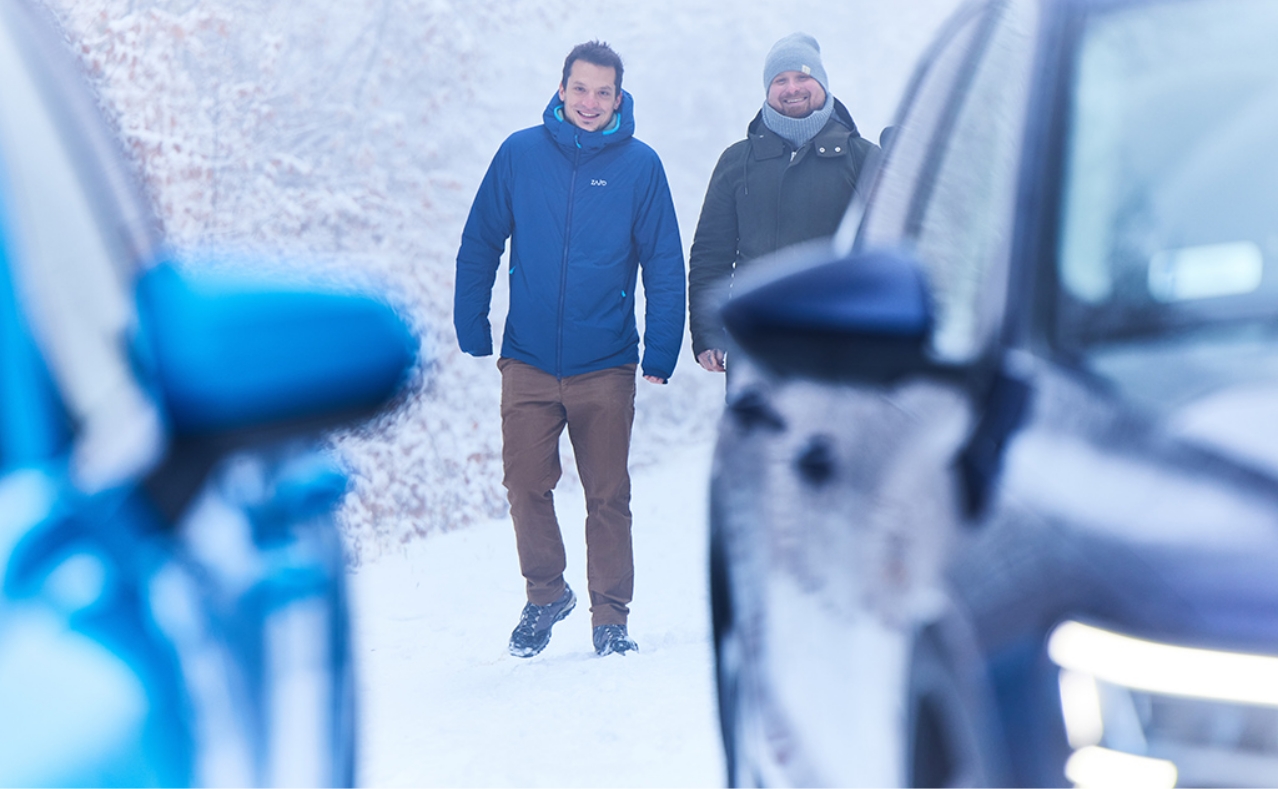
It’s a nice place to come to. It’s early morning – not to mention a Monday, when SALT is closed anyway – so all is quiet in the open design kitchen. We have never seen the restaurant, which received a Michelin star in September 2021, at this time of day before. Blackcurrant oil rests on the shelf in a long neck bottle, yet it still feels like stepping out of your bedroom into the living room in the morning – except the shelves are full of bottles instead of books.
There is no time to marvel at everything, though – we have to depart for Nyírmeggyes, a small village in Satu Mare County in Romania, where we’re going to visit Szilárd and his brother-in-law Zoltán Vári’s meat-curing facility. This is the place where the magical guanciale (pork jowl bacon) and coppa cold cuts that eventually end up in the dishes served at SALT are prepared.
We are travelling in two cars: we will complete the first half of the trip in an Audi e-tron (whose electric motors have won praise for the expertise of the Hungarian workers), and the second in a 100 per cent Győr-manufactured plug-in hybrid Q3. The choice is no coincidence: it is a discreet reflection, if you will, on the parallel between SALT’s innovative approach to sustainability and Audi Hungaria’s similar ambitions in the global automotive industry.

Szilárd drives, Máté navigates. Though in reality, of course, the e-tron’s infotainment system tells us and shows us how to avoid the Budapest traffic. The restaurant’s creators play around for a few minutes with the options offered on the panel. They search, research, and experiment, typical behaviour for them, and something that defines the everyday life of their restaurant, which opened in autumn 2019. Audi has applied its decades of experience to the model we are travelling in, and Szilárd and Máté have followed the same path, even if SALT has somewhat less’ history behind it.
Their concept crystallised over a number of years and can be summed up in a few key words: natural, domestic ingredients (the smoked eel is the only import on the current menu), surprising fusions, predominantly organic wines, sustainability, respect for tradition and innovation, and a relaxed, cosy atmosphere. They are open from Wednesday to Saturday, and the dinner is always fixed, featuring a 15-course tasting menu with meat and vegan versions, international and Hungarian wine lists, and – one of the restaurant’s trademarks – juice pairings that are developed in house.
We are travelling in two cars: the first half of the trip in an Audi e-tron, the second in a 100% Győrmanufactured plug-in hybrid Q3 PHEV. Audi Hungaria has applied its decades of experience to these models.
A hard day's night
“It’s comfortable in every way, beautiful, easy to handle. And there’s no accelerator lag. That’s the worst, especially with a scooter: you step on the gas pedal, and nothing,” explains Szilárd as he shares his first impressions of the e-tron, chuckling at the joke. "That actually happened to me the first time I drove an electric car – I pressed the brake instead of the accelerator when I wanted to start...” Máté reveals. A short beep interrupts the laughter: the car is signalling that another vehicle is too close.
The situation wasn’t nearly as clear when it came to the Michelin star they earned in the autumn. “I hoped we’d make it into the guide, but getting a star surpassed all my expectations. I actually think it’s a bad idea to have a star as your objective – it takes the spirit out of it all, but obviously it’s a significant factor in the life of a restaurant,” says Szilárd.
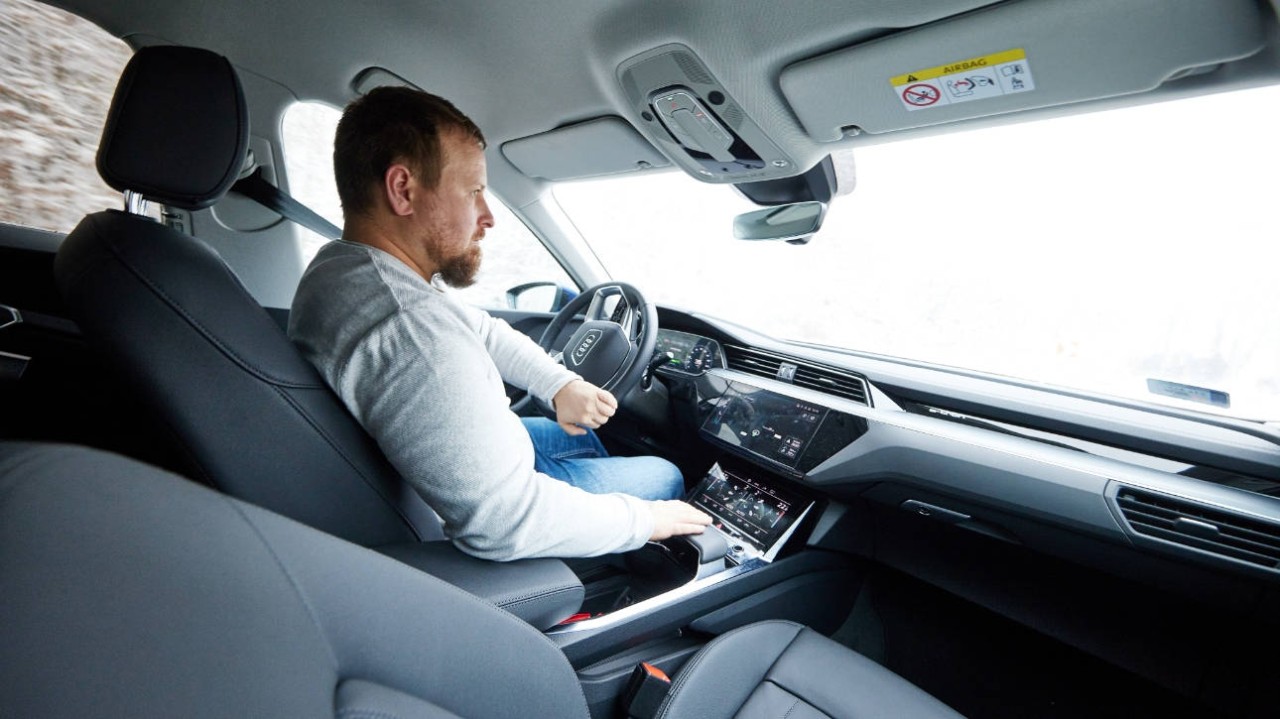 Paying attention to everything
The e-tron driver support system helps the driver with everything from continuous monitoring of the environment to intelligent route guidance for navigation.
Paying attention to everything
The e-tron driver support system helps the driver with everything from continuous monitoring of the environment to intelligent route guidance for navigation.
Máté finishes the story: “Szilárd was constantly refreshing the Michelin website on his phone. At first it didn’t sink in that SALT had got a star. It was a busy day, a Thursday, we had to get ourselves together for dinner in the evening. The phone was ringing all day long, everyone wanted to reserve a table immediately for that night, even though we were already fully booked. We were totally euphoric.”
Searching, researching
It is early December.
It is no longer possible to collect edible grasses and flowers, herbs and every kind of meadow or forest produce at this time of year. In the right season, the SALT team do the work themselves before preserving the gifts of nature in various ways: they are fermented, pickled, dried, or made into oils. The restaurant’s homemade oils, vinegars, seasonal fermentations and pickles lined up in metal-clasp bottles on the shelves may look great, but they are more than just decorative: everything you see will sooner or later end up in front of their guests. In what form? A little bit of this, a little bit of that. And that’s what makes it all so magical.
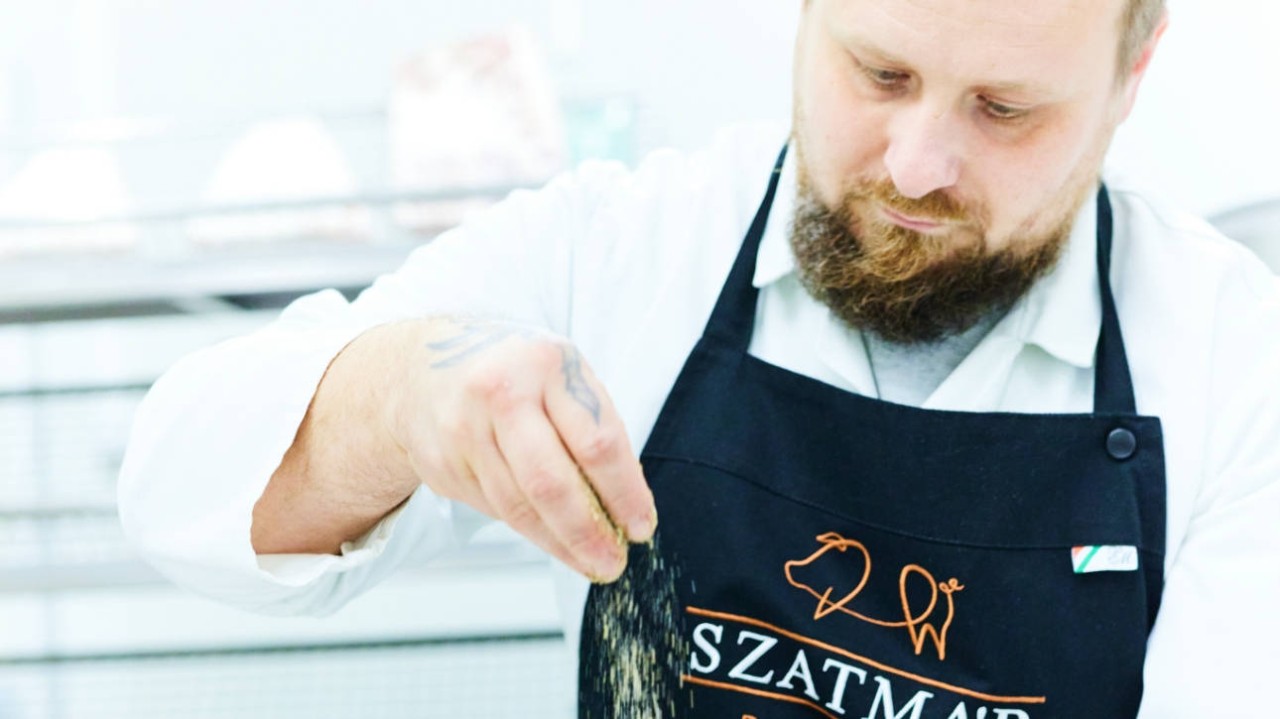 Masterful movements
Szilárd seasons the coppa; the pork cold cut is a key element of the salt tasting menu.
Masterful movements
Szilárd seasons the coppa; the pork cold cut is a key element of the salt tasting menu.
“Two weeks ago there was still some blackthorn in a forest in Satu Mare. Both of us went there – it was a special occasion as we were travelling with the Michelin crew. When possible, the whole team goes out foraging together, either before work or on a day off,” says Máté.
Szilárd listens, enjoying the noiselessness of the e-tron and its swiftness before jumping in.
“The areas are expanding, the knowledge base is growing in terms of what we can gather and how we can use it. It’s a slow process. If we do identify a new ingredient, we can never be sure we will find it in an area where the soil will produce it at the levels of quality and quantity we need. It’s also not written in stone that we will immediately find the best way to preserve it – we don’t always want to use it fresh. We want to extend the season of the given ingredient – this not only improves our sustainability, it also helps us present another side to it too.”
This is the brief origin story of such wonders as sorrel, pickled rose hip, green strawberries and salted gooseberries – just to name a few. Szilárd, for example, has been ‘hunting’ beech-nut for three years. This year the harvest was poor, while a year ago the pandemic ruined his calculations and pushed the team’s attention and resources in another direction. “We can use it in the same way we do oilseeds. In the past, it was a delicacy for the average person living in hilly regions – beech-nuts are actually a part of Hungarian gastronomic culture,” Szilárd explains. He adds that, while he had a love of nature even as a boy, his knowledge of ingredients and harvesting came with his profession.
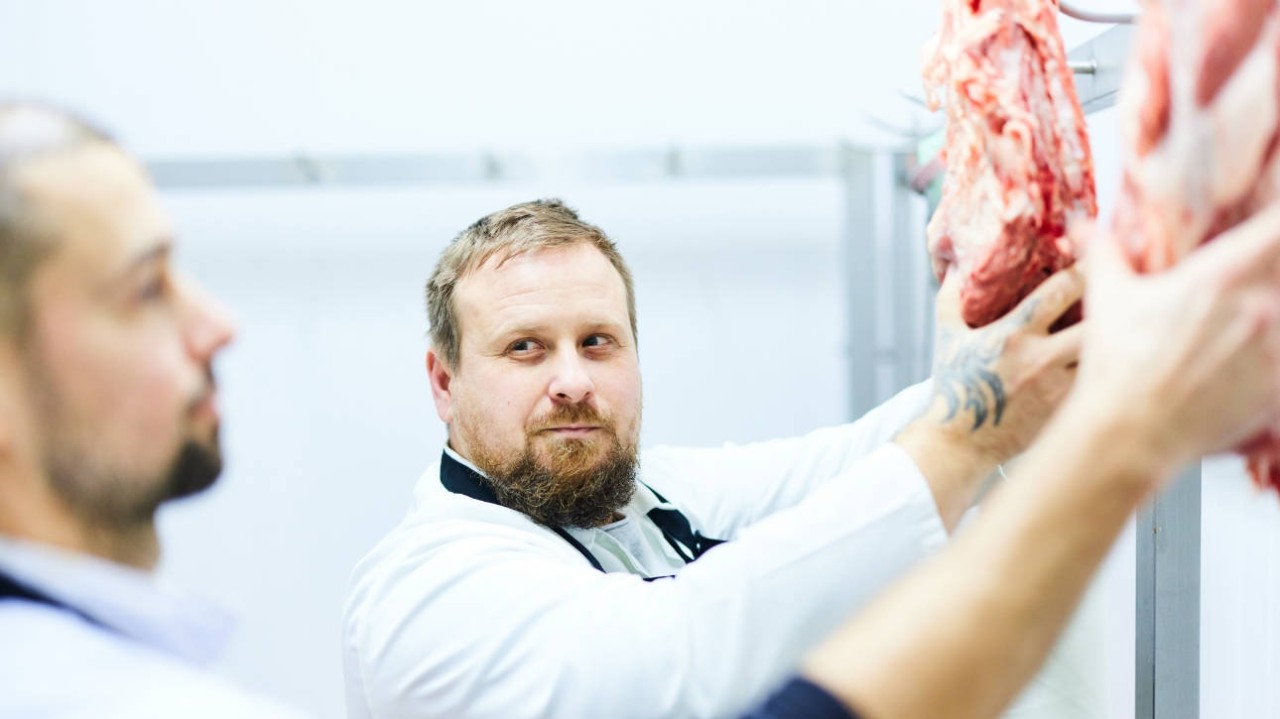
“I’m not hardcore. I just follow Szilárd. He’s the number one explorer in this field, though we also have a botany mentor. In addition to gathering resources, you can say the same about the whole of SALT’s operation: everyone has their eyes and ears open; we are constantly asking, discovering, whether it’s about flavours, food and wine combinations, basic ingredients, anything. There is some overlap in our roles – we don’t work in a typical restaurant structure. Even though I’m responsible for drinks and service, my team and I also help Szilárd in the kitchen, and vice versa,” says Máté.
This explains why there are no plans to increase SALT’s capacity.
“We can remain sustainable in this form and at this size – there is a symbiosis in the system. Guests have a good time, while we and nature itself can both cope with the burden. In terms of environmental awareness, this is another important consideration, just like our use of equipment, selective waste collection, not using straws and PET bottles, and reducing waste to almost zero,” says Szilárd.
We strive to innovate, our brains are whirring, we experiment, we try to incorporate new elements into Hungarian cuisine.
Szilárd Tóth
SALT democracy and it's playgrounds
Nyírmeggyes is a long way from Budapest, which leaves us plenty of time to try out both cars. Somewhere around halfway, we swap vehicles and make a brief assessment: the sense of space and the seats are different, as is the feel of driving them, though the Q3 PHEV is just as responsive, quiet and fast as the e-tron.
We continue the conversation by discussing wines.
“Putting together the wine list is a difficult and complicated game – another learning process. Maybe one particular type of wine isn’t perfect – it has a small flaw – but it makes for an amazing pairing with certain foods. It’s not always the first or second wine we think of that wins out,” explains Máté, who mentions that there was a change in the menu at the start of November, with a greater focus on meat. The main topic of the current ever-changing autumn/winter menu is the traditional Hungarian pig slaughter, which also led to a new list of wines.
The pair speak with a lot of energy, laughing often (Szilárd the more loudly of the two) and teasing one another. At times they interrupt each other, though not if we are discussing more serious subjects. They like and respect each other.

“I don’t know if there is a part of the SALT package that I would say is my favourite... I really like the fact that when we are working out combinations, we try a lot of things as a team, it’s exciting. But it’s an incredibly good feeling to see the childlike sense of wonder, the recognition, in our guests’ eyes. It feels a bit like a play we put on every evening. During the day we get ready, and there’s some tension too, but at six in the evening we switch to chill mode, because that’s when it all starts, and our reward comes from the guests,” says Máté.
We wait for Szilárd to compose his thoughts. He takes a deep breath. “What do I most enjoy about the world of SALT? Creating value by building everything from scratch. It’s a long process, so everything that ends up in front of the guests has its own story, and we live the whole of that story, from researching the ingredients or producer to sourcing it and bringing it to the plate. I really enjoy this. The food is our baby – we’re not just part of a process. We strive to innovate, our brains are whirring, we experiment, we try to incorporate new elements into Hungarian cuisine – and as we travel down this path, we meet some really great people. I would go along with what Máté said: the guests’ eyes wide with wonder, and the fact that the team is truly a team, that’s are what makes it all worthwhile.”
Creating value by building everything from scratch. It’s a long process, so everything that ends up in front of the guests has its own story.
Szilárd Tóth
Everyone is a little bit involved in everything: the pastry chef also comes out to source ingredients, to taste, because these experiences and adventures nurture their curiosity. But where does this democratic approach come from? It seems like an exception in the harsh world of fine dining. Maybe it’s a family legacy?
“I have two elder brothers and a twin – I virtually had to fight for my supper.” (Both of them laugh.) “I often had to compromise, so I accept what the majority wants,” is how Máté explains his point of view.
“We are curious people, and we let each other state their opinion. We also know that we are not all-powerful and all-knowing. In any case, if I’m surrounded by great people, it would be foolish to ignore their opinions and experiences, nail my colours to the mast and follow my own ideas. That wouldn’t be logical,” says Szilárd, as we travel through Mátészalka (we also pass the building where he started working at 18 years of age after finishing vocational school).
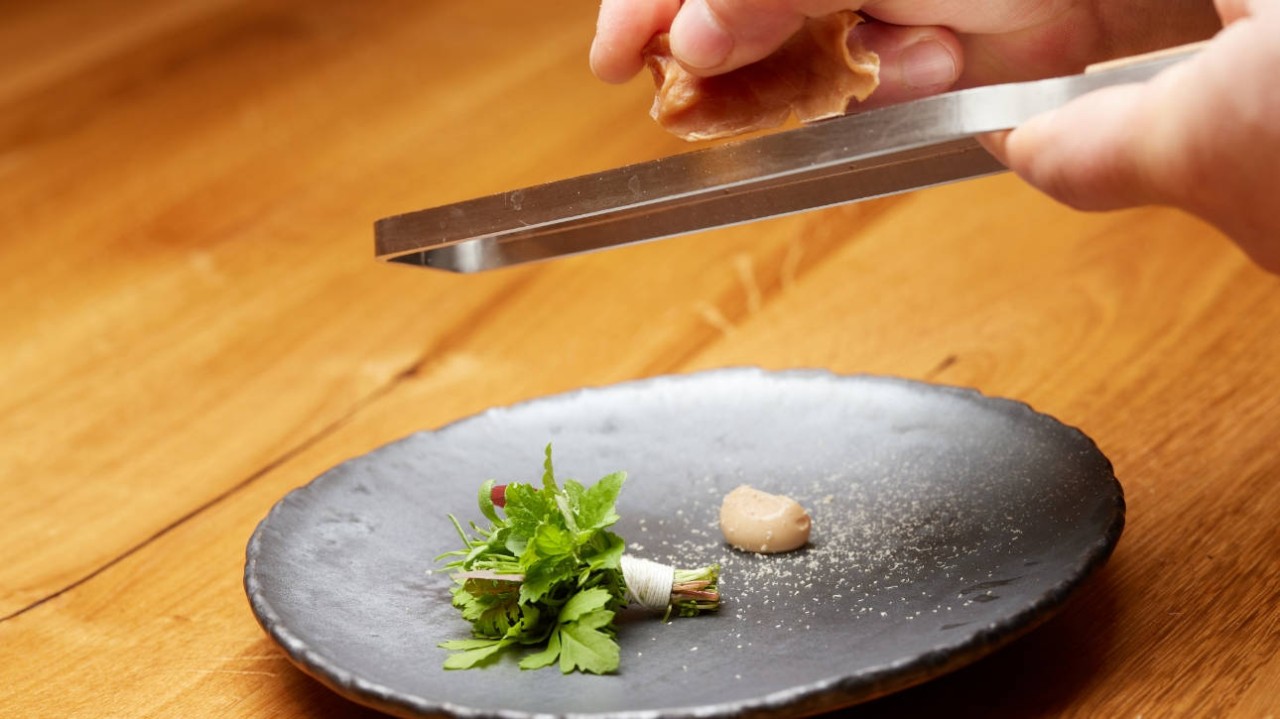 One of fifteen
Every item on the long menu list is chosen with exactly the same precision.
One of fifteen
Every item on the long menu list is chosen with exactly the same precision.
Haute cousine with mature technology
We have travelled nearly three hours to “the base”, but with so many stories the time has flown by. We are already turning the corner to the Nyírmeggyes meat factory, where we are welcomed by Szilárd’s brother-in-law, Zoltán Vári. A third-generation butcher. A true magician. Zoltán and Szilárd are our tour guides through the 600-m2 building, at the end of which lies an extension – Szatmár Dry Cured, a windowless meat-curing room with a height of 3.5 metres and 60-cm-thick adobe walls.
It is the source of mangalica- based guanciale and pancetta bacon, as well as the coppa (a pork cold cut), that play a vital role in certain SALT dishes. In the room, the pieces of meat hang one on top of the other, all of them labelled, with the details kept in an Excel spreadsheet so each product can be tracked and traced: the original producer of the raw material, when the batch was made, and where or to which restaurant it is headed.
Road trip participants
- Szilárd Tóth: restaurant owner, chef, familiar with medicinal and wild plants, leader of joint collections.
- Máté Boldizsár: restaurant owner, sommelier, leader of the SALT service team.
- Audi e-tron: the brand’s first purely electric SUV model with two electric motors, manufactured in Győr, all-wheel drive.
- Audi Q3 PHEV: a plug-in hybrid family SUV with a 1.4 TFSI (110 kW) engine and an electric (85 kW) motor generating 245 hp, made at Audi Hungary.
“That’s last week’s batch. The one below it we are taking down next week, and then in their place will go the cuts that we prepare then. The latter already have an owner,” says Zoltán as he shows us a loosely strung triangular piece of coppa. This is the meat’s original shape, before around 45-50% of the water leaves the product over about five months of maturation.
The coppa is covered with a tarpaulin as it requires 20% higher humidity to mature than bacon does. At the same humidity, bacon would start to go off.
“We have to keep the humidity low on the whole, which the adobe really helps with,” says Szilárd, as he and Zoltán add some salt. The meat is covered by large, translucent shards: sea salt with a natural nitrite content. The salt prevents the spread of harmful bacteria. It is slowly absorbed and dissolved, so the salt content of the product remains low and doesn’t ’steal’, or obscure the taste of the food itself.
We taste it. It’s incredible.
They have created an otherworldly kind of bacon, and its flavour lingers in our mouths as we bid farewell.
It’s already dark outside, and we have a long drive ahead of us.
